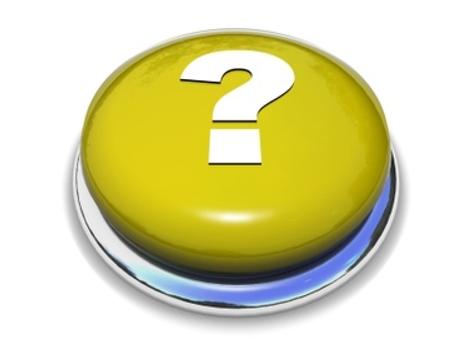Will your child be going to high school in a few years? Are you looking at the academic options available in your local public and private schools? If so, then I recommend that you take this IB quiz. It will help you decide the best college prep approach for your child.
In education, one size does not fit all because children learn differently. Some children do well in a school offering a curriculum centered around Advanced Placement courses and Scholastic Aptitude Test (SAT) preparation. Others thrive in the non-traditional educational experience that progressive schools provide. Finally, some children find that the substantial academic experience that the International Baccalaureate program offers is the right option for them. Your answers to the following questions will help you make the right decisions about your child's academic future and preparation for college.
Why should I consider a school that offers the International Baccalaureate® Diploma Programme?
For several reasons, you should consider sending your child to a school that offers the International Baccalaureate® Programme, or IB as it is affectionately called. First of all, you have decided that you want your child to learn how to do serious academic work in high school so that she is well-prepared for the rigors of tertiary-level academic work. Secondly, you are uncomfortable with her only learning how to do well on tests. Thirdly, you want her to develop superior writing and research skills.
Where is the IB Diploma Programme offered?
Most American public and private high schools use the Advanced Placement or AP curriculum. It is a solidly American approach that traces its roots back to the 1950s. The International Baccalaureate® Diploma Program had its beginnings in Geneva, Switzerland, in 1968. The IBO states its case succinctly: "The programme aims to develop students who have excellent breadth and depth of knowledge – students who flourish physically, intellectually, emotionally and ethically." Thirty-two boarding schools in the United States offer the IB Diploma Programme.
This video describes the IB Diploma Programme.
What does the IB Diploma Programme involve?
The International Baccalaureate Organization offers programs for the primary school, middle school, and high school years. The Diploma program is a comprehensive course of study for students ages 16-19.
The Diploma curriculum consists of a core group of elements and six subject areas.
From the International Baccalaureate® Diploma website:
"The three core elements are:
- Theory of knowledge, in which students reflect on the nature of knowledge and on how we know what we claim to know.
- The extended essay, which is an independent, self-directed piece of research, finishing with a 4,000-word paper.
- Creativity, activity, service, in which students complete a project related to those three concepts."
"The six subject groups are:
- Studies in language and literature
- Language acquisition
- Individuals and societies
- Sciences
- Mathematics
- The arts"
The International Baccalaureate® Diploma curriculum elements and subject groups are offered as a whole. You cannot pick and choose which elements or subject groups you want to study. The elements distill the specific detailed knowledge you acquire from your studies in the six subject areas. The subject area is taught on two levels: standard and higher.
The genius of this approach is that students learn how the various subject areas roll up into broader elements or concepts. Instead of learning a subject and keeping what is learned tucked away in an academic silo, students are taught to think across the curriculum. They know how the six subject areas are interrelated.
This video from the International Baccalaureate Organization illustrates the effect a comprehensive approach to curriculum has upon a young person.
How is the International Baccalaureate® Diploma Programme taught?
The IBO has the following requirements to become a certified IB Diploma teacher: "To be eligible to complete an IB certificate program and receive IB certification, you must possess a valid teaching license or be an expert teacher, having completed a graduate degree program in your subject area and having spent at least three years as a classroom teacher.
Earning a graduate degree (Masters or Doctorate) in your subject area implies an in-depth knowledge of that subject. In addition, spending at least three years in the classroom teaching that subject demonstrates a high standard of pedagogy.
This video explains IB teacher training and preparation.
Who can offer the IB Diploma Programme?
Schools have to be authorized by the International Baccalaureate Organization to offer the Iinternational Baccalaureate® Diploma Programme. "The IB is proud of its commitment to provide challenging and unique programmes of education to schools around the world. The authorization process backs up this commitment. As a result of the process, parents and students can be confident that each IB World School, no matter where it is located, is held to the same high standard."
When does your child begin studies for the International Baccalaureate® Diploma Programme?
The Diploma curriculum runs for two years. It is typically covered during a student's junior and senior years. The final examinations are given on the same day at IB World Schools everywhere.
What are the negatives of the International Baccalaureate® Diploma Programme?
The International Baccalaureate® Diploma Programme is costly. Setting up the curriculum and training teachers to teach it is expensive and takes much time and planning. The program places American history and culture within a global context, which will make it un-American for some. The curriculum is not flexible. Control of curriculum resides with the International Baccalaureate Organization, not the local or state education authorities.
What are the positives of the International Baccalaureate® Diploma Programme?
The Diploma is recognized by top colleges and universities worldwide. Parents appreciate the solid academics and discipline that it both encourages and requires.
As you begin to evaluate private schools, explore your academic options. Private schools offer distinctive educational approaches and philosophies for just about every inclination. Finding the school or schools that best suit your needs and requirements will result in a happy child and an optimal learning experience.
Questions? Contact us on Facebook. @privateschoolreview























